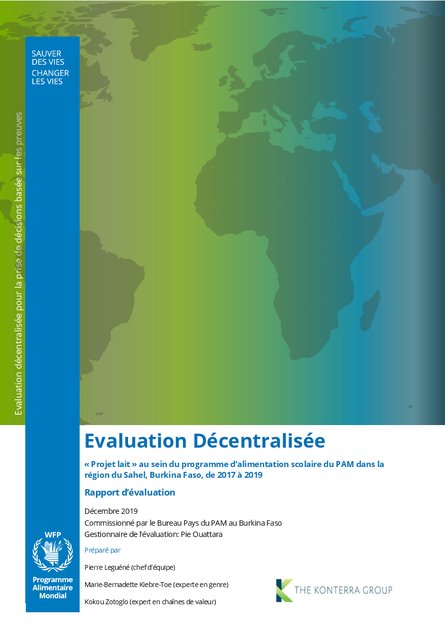
This decentralized evaluation was commissioned by the WFP Burkina Faso Country Office and covers the activities of WFP Cartier Philanthropy-funded Projet Lait (Milk Project) in Burkina Faso from October 2017 to October 2019. It was carried out in 2019-2020.
The evaluation was designed according to the following international criteria: relevance, effectiveness, efficiency, impact and sustainability.
Overarching evaluation questions included:
How relevant was the Milk Project?
How effective was the Milk Project during the period covered by the evaluation?
How efficient has the intervention been?
What impact did the intervention have?
To what extent is the intervention sustainable?
Some of the activity-specific findings include the following:
The project contributed significantly to women empowerment and transformed positively the relationship between men and women. The generated income allowed women to be financially independent and increase their capacity to contribute to the household budget.
The choice of a low-tech and semi-artisanal production model in the Milk Production Units is adapted to the local context and its social and organisational viability has been favoured by the respect of the role that women play in the value chain traditionally.
The introduction of yogurt in the school meals had a positive effect on pupils’ satisfaction and attention, which is likely to improve school performance. The yogurt ration has positive advantages compared to the porridge ration, however it has a deficit in iron and vitamin A which could represent a problem in an area with high prevalence of anaemia.